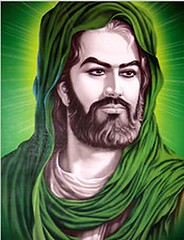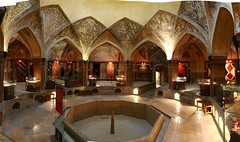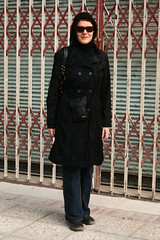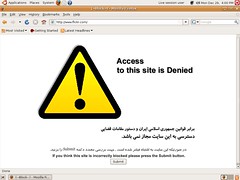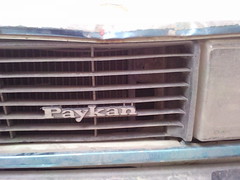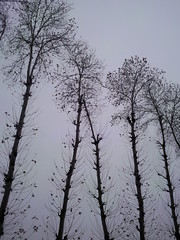
Tree-lined avenue in the rain at dusk, Fuman town, Gilan Province
Originally uploaded by rastapopolos
Fuman's a pokey little town; not pretty, but picturesque and charming in its own way. It's got a long main street lined with motorcycle repair shops, bakeries, greengrocers and household goods stores. Trees are dotted around the town, adding to the rural feel. The centre of the town has a small open-air fruit and veg market. There's one restaurant.
It rained constantly as Aisling and I wandered around the town, killing time. We weren't hungry, but we were thirsty and bored. We found a simple chai shop near the market behind steamed-up windows. I opened the door from the street and the warm glow from the kerosene heater and the proprietor's smile lured me in. Aisling followed me and I gestured to ask if it was OK for her to join me. The grey-whiskered owner nodded his assent. In a booth near the back of the shop, two of the locals sat chatting quietly about the business of the day. They glanced at me briefly - long enough for me to greet them - and went back to their conversation with the proprietor after greeting me in return.
We sat just inside the door, near the window, on metal and plastic chairs at an unsteady table covered with a faded plastic table cloth. I asked for two teas please. "Dota chai, lotfan."
I slurped down my sweet tea in moments and the owner refilled my glass. We sucked on the boiled sweets provided and chatted in low tones. More of the locals came and went, acknowledging us warmly when greeted. The owner poked his caged bird and it sang for us.
After I'd drunk enough tea, I caught the proprietor's eye and asked for the bill. He waved me away, indicating that payment wasn't necessary. "Aha", I thought, "it's ta'arof".
Ta'arof is a bit like the way Irish people interact politely over cups of tea and cakes - "aah, you will, you will, you will - go on, go on, go on". "No you're grand, no really, I'm full, oh go on then."- but it's a little bit different too, as I was about to discover.
Ta'arof is the cultural obligation to put others before yourself, to make guests feel welcomed and treasured. I was aware that the owner of the chai shop and I were engaged in a game; he wanted me to pay and I knew I'd have to make several attempts to pay before he'd accept.
In order to move the transaction along, Aisling and I stood up and shrugged on our coats as I asked again how much we owed. It was at this stage that I made a fatal mistake - I neglected to take out my wallet. Moving towards the door, I asked again what we owed, smiling graciously for the wonderful hospitality and muttering warmly "of course we must pay, thank you thank you". The owner still refused to name a price and shook his head, smiling. It was all a little toe-curling. Some of the other men in the chai shop began to take an interest in the exchange.
"Accept graciously", said Aisling, "it was only a few cups of tea."
This threw me - maybe he was genuinely giving us a gift of the tea - surely if he wanted payment he wouldn't hold out that long? Maybe I was the rude one, making a fuss about insisting on paying him such a trivial sum when all he intended was to make us welcome. We stepped out onto the street into the rain.
The owner followed us out, his smile gone, holding out his hand. The other men in the shop clustered up against the steamy window to see what the outcome would be.
I was mortified. I pulled out my wallet and apologised to the owner. He extracted a few low-denomination bills from my hand. Slightly more than the price of a few cups of tea. I didn't mind. I laughed and shook his hand and apologised again in English and Farsi. "I'm sorry dude, Bebakhsheed, agha" We retired from the scene gladly.
